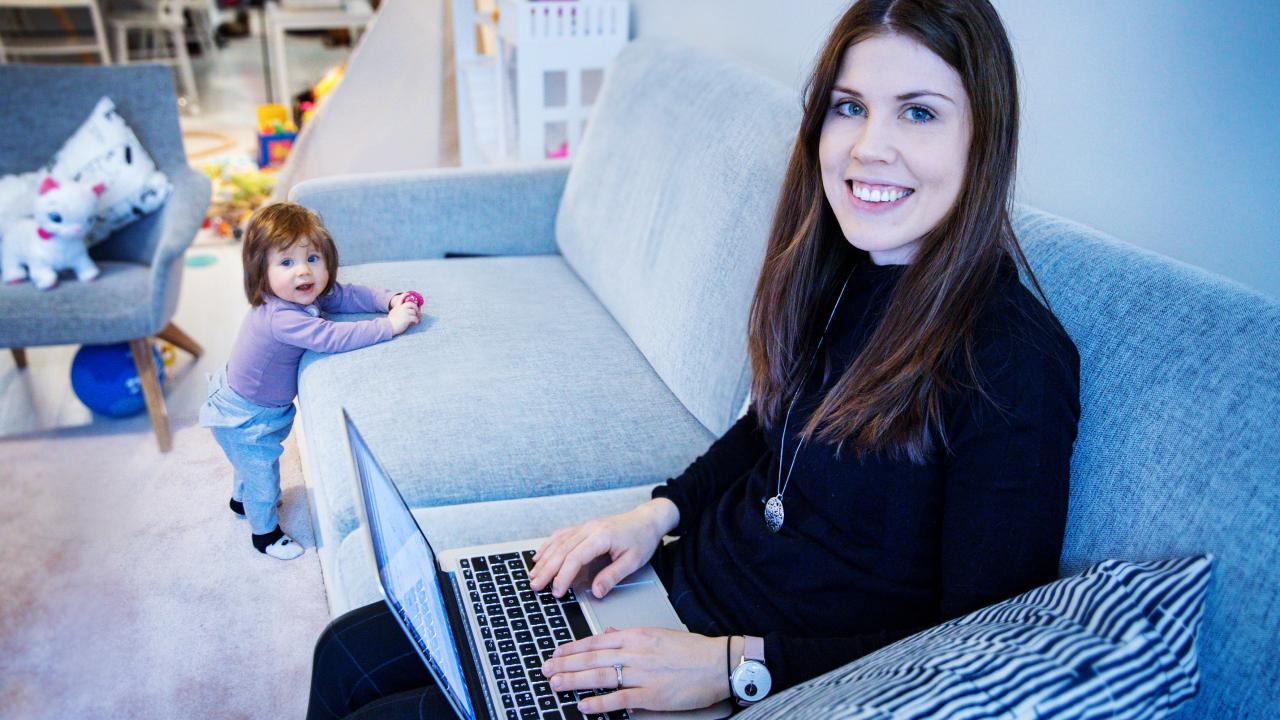“Be kind to yourself when working remote!”

Hanken, like every knowledge work organisation in Finland at the moment, has rapidly shifted from offices into remote work at home. After the first days of settling down, it seems it all has started surprisingy smoothly.
Assistant Professor Emma Nordbäck works at the Department of Management and Organisation at Hanken and studies remote work. For the past 10 years, she has specialised in virtual teams, including how to collaborate, communicate, and lead teams over distance. She knows what is needed to organise remote work well.
The first thing Nordbäck brings up is that it can be difficult to accept that especially in this unusual situation caused by virus epidemic, working at home may not be as efficient as it may be under normal circumstances. “It is important to acknowledge and understand that one doesn’t get as much done as normally, specifically if there are small children at home, at the same time. It is nothing to feel bad about but rather a reason to be merciful towards oneself and others”, she says.
“Productivity is not the most important thing right now”, she continues. Normally, people tend to work remotely 1-2 days a week, or part of their days, and otherwise meet in person at the office. It is easy to communicate at the office and save tasks that require more concentration, to be done at home. But now, we cannot choose where to work but have to do all the work at home. In these situations, it becomes increasingly important to communicate with colleagues through virtual meetings and coffee breaks. Surprisingly, there might be some silver linings in this sudden virtualization of work. “Now also our colleagues in Vaasa can attend our virtual coffee breaks the same way as the rest of the community”, Nordbäck tells.
At the moment, Nordbäck conducts research by asking people to write diaries about their remote work during COVID-19. From her empirical data, she has noticed that in virtual meetings kept now, people are more concerned about each others well-being and are willing to share more insights from their personal life, by for instance presenting their home or family members when visible in the video conference. In other words, we are seeing an increase in social engagement and human touch – which normally tend to fall out from virtual meetings. Nordbäck recommend that people make the effort to turn on their cameras during meetings as research shows it improves concentration and decreases multitasking. Video connection can though overload the network right now, unfortunately.
Nordbäck estimates that, in the long run, continuous unvolountary remote work will not be good for us, given the fact that we cannot know how long it takes before we get into the normal again. On the other hand, this period may constantly change our attitudes towards work: The amount of distance work is likely to increase globally, and people may understand that for example many work trips that we used to consider as a necessity, are not, in favour to the environment. In general, our understanding of work can become broader. “But in the end, I think most of us are happy when we can return to the office again, perhaps with new lessons learned and more prepared than ever for the future of work. It will become increasingly virtual”, Nordbäck states.
Read more tips for remote work here Opens in new window ! (requires login)
Photo: Cata Portin

